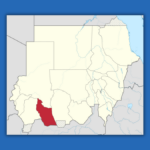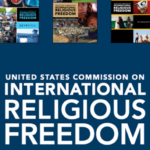THE FIRST CHRISTMAS
Luke 2:1–15
Luke’s narrative of the birth of Jesus highlights both theological and historical aspects of the event. Luke’s account connects the birth with world history but also proclaims the birth of Jesus in theological terms. Neutrality is not possible regarding the person and ministry of Jesus. As a historian, Luke anchors the ministry of Jesus in the context of world history.
The Location (1–5)
Emperor Caesar Augustus ordered a census be taken of the whole Roman Empire for tax purposes rather than for military service. All the people in the Roman Empire were required to travel to their places of birth and heritage. Joseph was a descendant of King David and traveled from Nazareth in the north to Bethlehem, the ancestral home of David.
Bethlehem means “house of bread” and was located about 5 miles southwest of Jerusalem. Micah had predicted that a ruler over Israel would have His origin in Bethlehem. Joseph and a pregnant Mary traveled approximately 90 miles on their journey to Bethlehem.
Jesus is the Son of God, but He is also descendent of David. The Roman Empire sought increased taxes, but their tax procedures resulted in the fulfillment of the One coming from Bethlehem who would be “ruler over Israel for Me” (Mic. 5:2).
The Birth (6–7)
The journey from Nazareth to Bethlehem must have been difficult for the pregnant Mary. Jesus was born in Bethlehem in fulfillment of Old Testament passages.
Early Church tradition affirmed that Jesus was born in a cave east of Bethlehem. Luke notes that Jesus was the firstborn son.
While Mary gave birth to other children, being the firstborn emphasizes the favored role of Jesus as the One possessing certain rights and privileges. The King of kings was not born in a glorious palace. He was born in the most humble of circumstances.
In Philippians 2:6–11, Paul affirms that Jesus humbled Himself but notes that God exalted Him above all others.
The Declaration (8–15)
Luke describes two different responses to the angelic announcement. First, there was a heavenly response consisting of an angelic announcement and praise song (vv. 8–14), and there was an earthly response in the shepherds’ praise and the wonder of all who heard the message of the shepherds (vv. 15–20). Outside Bethlehem, there are fields known today as Shepherds’ Fields.
While the Bible portrays shepherds in a positive way, shepherds did not have good reputations because the nature of their work made them unable to observe the ceremonial laws related to cleanness. Further, shepherds were viewed as unsavory characters and could not testify in a Jewish court of law.
After the time of praise, both the shepherds and the angels left. The angels returned to heaven, and the shepherds traveled to Bethlehem to see the event the angels announced.
The angels gave the first announcement of the gospel — a message of peace to people God has favored.
By Mark Rathel
Professor at the Baptist College of Florida in Graceville, Florida








